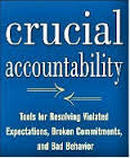 I heard about Abundance: The Future Is Better Than You Think by Steven Kotler and Peter Diamandis on some blog post and thought it was an intriguing idea. I am typically optimistic and think there has been so much progress made in civilization, and I was curious to hear why the authors of this book were optimistic too. The book was effectively a long catalog of many of the exciting technologies people have recently launched or are actively working towards across many fields such as robotics and medicine. It was nice from the one hand to hear about the many big problems facing the world and the different initiatives people are taking to fix them. But I found the book to be too descriptive of the current solutions and approaches, and so I think it will be quite dated in a few years. I would have preferred more detail on the actual problems because those are the entry points to real opportunities. Even though I expected a bit more depth to the various arguments and less cataloging of examples, it was still an interesting read.
0 Comments
 (It's been a wild and crazy busy summer for me, and the reading and all other hobbies have taken a toll. I'm now getting back into a better reading rhythm and hope to catch up soon.) I've recently faced a number of personal and professional situations where people didn't live up to what they promised. To provide some tools and perspective for this situation, a colleague recommended I read Crucial Accountability: Tools for Resolving Violated Expectations, Broken Commitments, and Bad Behavior by Kerry Patterson, Joseph Grenny, Ron McMillan, Al Switzler, and David Maxfield. I had read their predecessor book, Crucial Conversations, and enjoyed that. This book was a nice build on the earlier one, and what I enjoyed most was the actual verbatim quotes and conversation snippets. I enjoy this sort of specific advice, with exact language that can be used in different scenarios, more than general, high-level advice. One of my biggest takeaways is the CPR model of having accountability conversations. The first conversation should be about the content (C) of what went wrong. If the problem continues, the second conversation should be about the pattern (P). And the third should be about the relationship (R). But as I said, what I found most useful were the concrete examples of language for how to start these conversations and how to frame the accountability issues while maintaining respect and safety. |
Archives
June 2024
Categories
All
Subscribe |
 RSS Feed
RSS Feed
